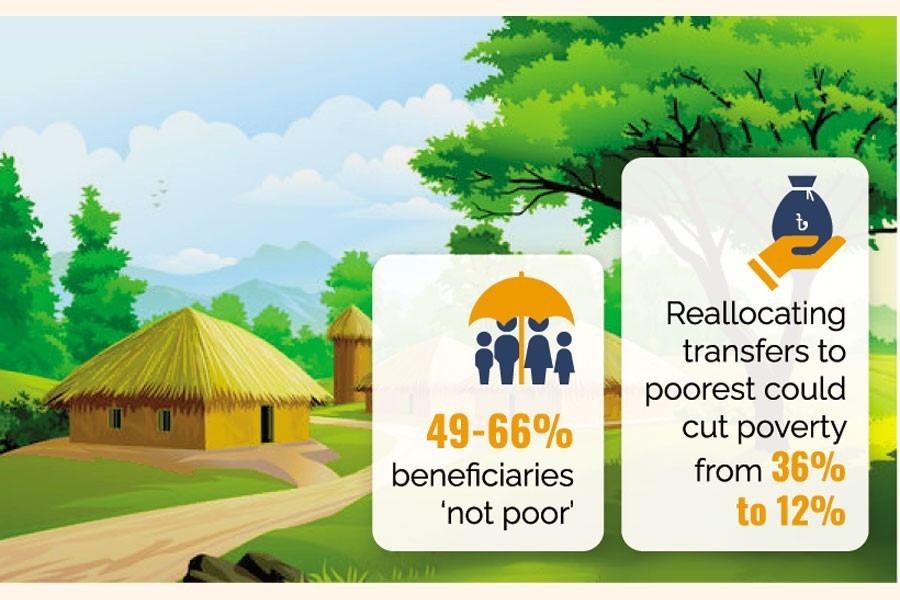The social safety net programme (SSNP) that helps the poor and others in distress, contain flaws such as mistargeting and skewed allocation of resources. Policymakers are aware of the imperfections, yet corrective measures have not come by until now. The findings of a recent study carried out by the World Bank (WB) might help the government fine-tune the programme and serve both urban and rural poor better.
The WB study report titled 'Bangladesh Social Protection Public Expenditure Review' noted that Bangladesh spends more on the social safety net than many countries in South and Southeast Asia, but it has been failing to reap the optimum benefit primarily because of wrong selection of beneficiaries and unplanned deployment of resources. The report unveils some unpalatable statistics, the most notable one being the transfer of sizeable SSNP benefits to the non-poor. It would not be out of place here to raise questions about making the money paid as pension benefits to the public servants as part of the SNPP.
Besides, the programme is more rural poor-focused---the coverage of rural poor is more than the poverty rate in rural areas. The situation has been the opposite in the case of the urban poor. Since the launch of the programme, the urban poor have got the least coverage. That should not have been the case since urban poverty has turned grimmer by the day because of the unabated migration of rural poor in cities and towns. A new class, called the new poor, created by the COVID-19 pandemic, has added yet another dimension to the problem.
The WB study report has found that the full access of the poor to the existing SSNP transfers could help reduce the country's poverty rate from 36 per cent to 12 per cent. But the issues restricting such access need to be addressed first with due earnestness. The government has been aware that the SNPP requires certain reforms to make it truly rewarding. But, the relevant authorities, deliberately or otherwise, avoided that task though the size of the programme continued to be bigger.
The good news is that the government, though belatedly, has decided to embark on reforming the SSNP. In June this year, the Asian Development Bank (ADB) extended a policy-based loan worth $250 million to do the job in the next five years. The ADB estimated that reforms would help the country save funds worth billions of dollars, besides reaching the SNNP benefits for the deserving people.
As advised by the ADB, the government plans to introduce an integrated registry system for all beneficiaries of the SNPP by 2023 to help avert 'mistargeting and duplication'. The latest WB study report is expected to help the reform initiative of the government. As the experience with reforms started in various sectors of the economy has not been that palatable, one might not be that hopeful about the outcome of the one involving the SNPP. Since the proposed reforms involve the wellbeing of millions of poor, all would expect seriousness on the part of the government.


